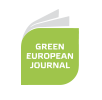The invasion of Czechoslovakia indelibly struck me in that unforgettable 1968 summer. I was on holiday but I couldn’t help following that tragic event on television. When I was a child my – leftwing – parents had bitterly described me the invasion of Hungary, therefore I was particularly sensitive to that second tragedy.
Ten years later, while living in West-Berlin in the time when the anti-nuclear and peace movements were growing across Western Europe, the direct experiences I made with the Berlin’s Wall and the “internal military occupation of Poland” decided by Jaruzelski brought me in contact with Eastern European non-violent opposition groups, such as Frauen für den Frieden (Women for Peace) in East-Berlin.
In 1985 I met – of course privately at his home in Prague – Vaclav Havel on the occasion of the women’s appeal – from the five European deployment countries – against the Nato’s Perhing and Cruise and the Soviet SS20 nuclear missiles that I promoted together with Frauen für den Frieden, Women for Peace West-Germany, Donne per la Pace (Women for Peace Italy), End England, with the adhesion of women from Charta 77.
In those days the vision of a democratic, united Europe seemed to be far away. And today we’ve achieved the European Union from Poland and Rumanian to Portugal, it looks as if EU could collapse destroyed by resurgent nationalistic interests and egoism.
50 years after, the memory of Jan Palach’s sacrifice will hopefully inspire Europe to keep on struggling for that vision.
Silvia Zamboni (Italy), Journalistin and Herausgeberin vom Buch “Un’altra Europa. Sostenibile, Democratica, Paritaria, Solidale* (Edizioni Ambiente, 2014) (Another Europe. Sustainable, Democratic, Gender-equal, Inclusive).

















